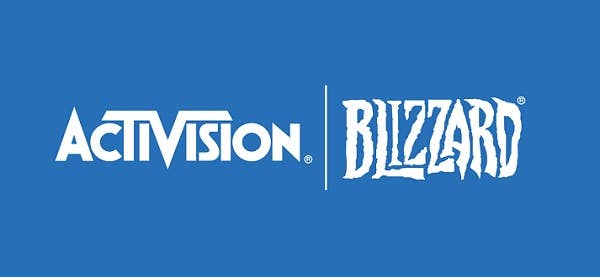California DFEH accused of ethics violations in Activision Blizzard lawsuit
A crossover of lawyers on two different cases could be a legal conflict of interest
New information pertaining to a settlement between Activision Blizzard and the Equal Employee Opportunity Commission (EEOC) has unveiled potential ethical violations that may impact the wider lawsuit.
A document filed last week by the EEOC, as spotted by PC Gamer, points out that two leading lawyers on the suit filed by the Department for Employment and Housing in California (DFEH) also previously worked for the EEOC, and specifically investigated Activision Blizzard prior to the $18 million settlement made last week between the two parties to resolve charges of discrimination.
If this is proven to be true, it is a conflict of interest, a violation of attorney ethics, and a breach of the California Rules of Professional Conduct, according to the filing.
"Specifically, two DFEH attorneys -- who play leadership roles within the organisation -- previously served as EEOC who helped to direct the EEOC's investigation into Commissioner's Charge No. 480-2018-05212 against Activision Blizzard, Inc," the document reads.
"These same attorneys then proceeded to represent DFEH in connection with these intervention proceedings, which seek to oppose the consent decree that arose out of the very investigation they helped to direct while at the EEOC."
The EEOC's document also notes that the DFEH brought in new counsel, but filed an appeal just hours afterwards, which suggests that the lawyers in question may still have been involved with the motion.
"After being informed of this conflict, DFEH retained new counsel but appears to have filed the present intervention motion just hours after this counsel was retained, strongly suggesting that the motion is a product of the prohibited representation," it continues.
"For this reason, the intervention motion should be disallowed and DFEH attorneys should be barred from providing work product to, or advising, new counsel in connection with these intervention proceedings."
The document also highlights that after being questioned about the conflict of interest by EEOC counsel, the two attorneys disconnected from the call.
The EEOC's filing concludes that in the event of an ethics violation, all DFEH attorneys should remain banned from representing the case, and calls the suit lodged by the DFEH "a product of prohibited representation."
"There can be no claim that there was timely 'isolation of [these] lawyer[s] from any participation' in representing DFEH in connection with the intervention proceedings, as would be necessary to show that timely screening took place," it says. "Thus, all DFEH attorneys were and should remain barred from representing DFEH in this matter."
Last week, the DFEH raised objections to the agreement, and said that the $18 million settlement would involve employees releasing Activision Blizzard from claims under California state law. It also said that settling also undermines its own case against the company.
"DFEH's pending enforcement action against [Activision Blizzard] will be harmed by uninformed waivers that the proposed decree makes conditional for victims to obtain relief," the DFEH said as part of the objection.
To catch up on the full Activision Blizzard story, take a look at our roundup.

